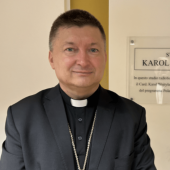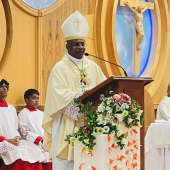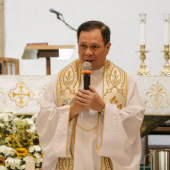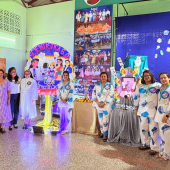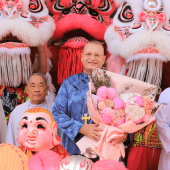Sri Lankan Villagers Protest Wind Energy Project in Mannar
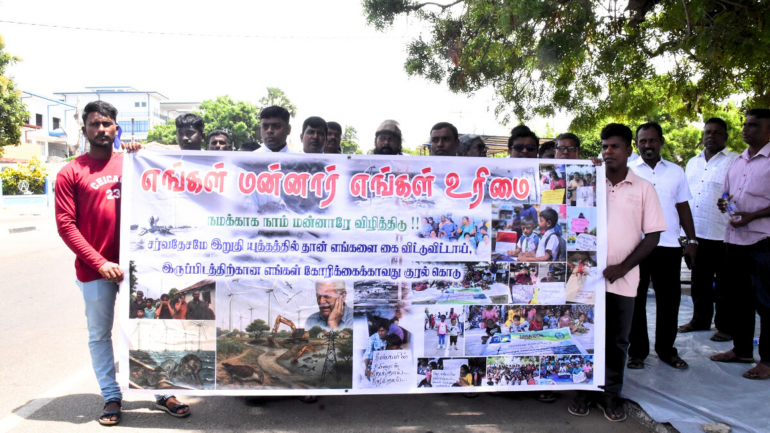
For nearly two weeks, villagers in Mannar, northern Sri Lanka, have staged continuous protests demanding the suspension of the second phase of a 50 MW wind energy project, AsiaNews reported.
They argue that the project threatens their livelihoods and poses a grave ecological danger to the region’s fragile environment.
According to AsiaNews, the protests have drawn strong participation from youth and religious leaders, who joined the local fishing communities in voicing opposition. Demonstrators carried placards reading: “Don’t kill our lives and don’t build the wind farm”, and “The wind farm is a death blow to us.” Villagers took turns maintaining the protest, with communities from Vankalai and Thalai Mannar leading recent demonstrations.
In response, the government held a meeting on August 13 with civil society representatives and Northern Province religious leaders, after which it announced a one-month suspension of the project. During this period, it pledged to review community concerns and identify possible solutions.
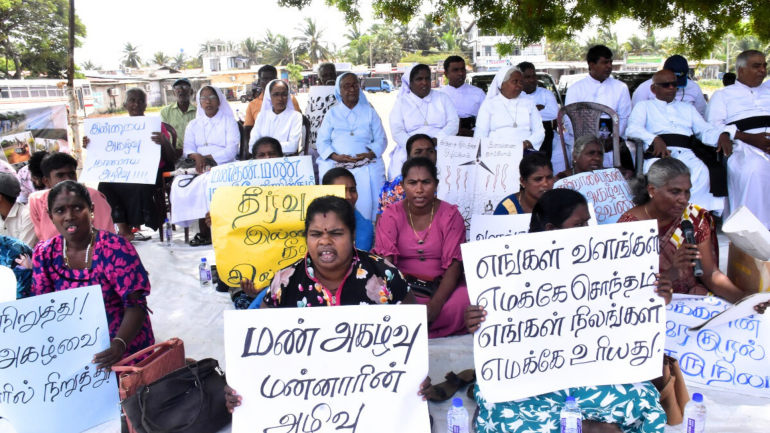
Fr. S. Marcus Adigalar, parish priest of Thalaimannar and president of the Mannar Citizens’ Committee, told AsiaNews: “We cannot allow this project to go ahead because it will have serious environmental consequences, just as happened after the first phase.” He noted that the earlier construction disrupted natural waterways, leading to repeated flooding in the region.
Mannar Island is internationally recognized as an important wetland ecosystem and is home to the Vankalai Bird Sanctuary, a vital stopover for thousands of migratory birds. It also sustains thousands of fishing families who depend on its surrounding seas. Environmentalists warn that the new wind project threatens bird habitats, marine species, and coastal mangroves, while also increasing erosion and reducing fishing access.
Local fishermen have already reported reduced catches in recent years, though conclusive studies have not been conducted. “We cannot destroy nature, wildlife, and people’s livelihoods in the name of renewable energy,” participants in the protest said.
Discussions between the government, church leaders, and the local population are ongoing. Fr. Marcus emphasized that the people will not abandon their protest but seek a peaceful resolution: “We must be able to live on this island in peace, as in the past. We must be able to breathe freely. That is all we ask.”
Radio Veritas Asia (RVA), a media platform of the Catholic Church, aims to share Christ. RVA started in 1969 as a continental Catholic radio station to serve Asian countries in their respective local language, thus earning the tag “the Voice of Asian Christianity.” Responding to the emerging context, RVA embraced media platforms to connect with the global Asian audience via its 21 language websites and various social media platforms.










